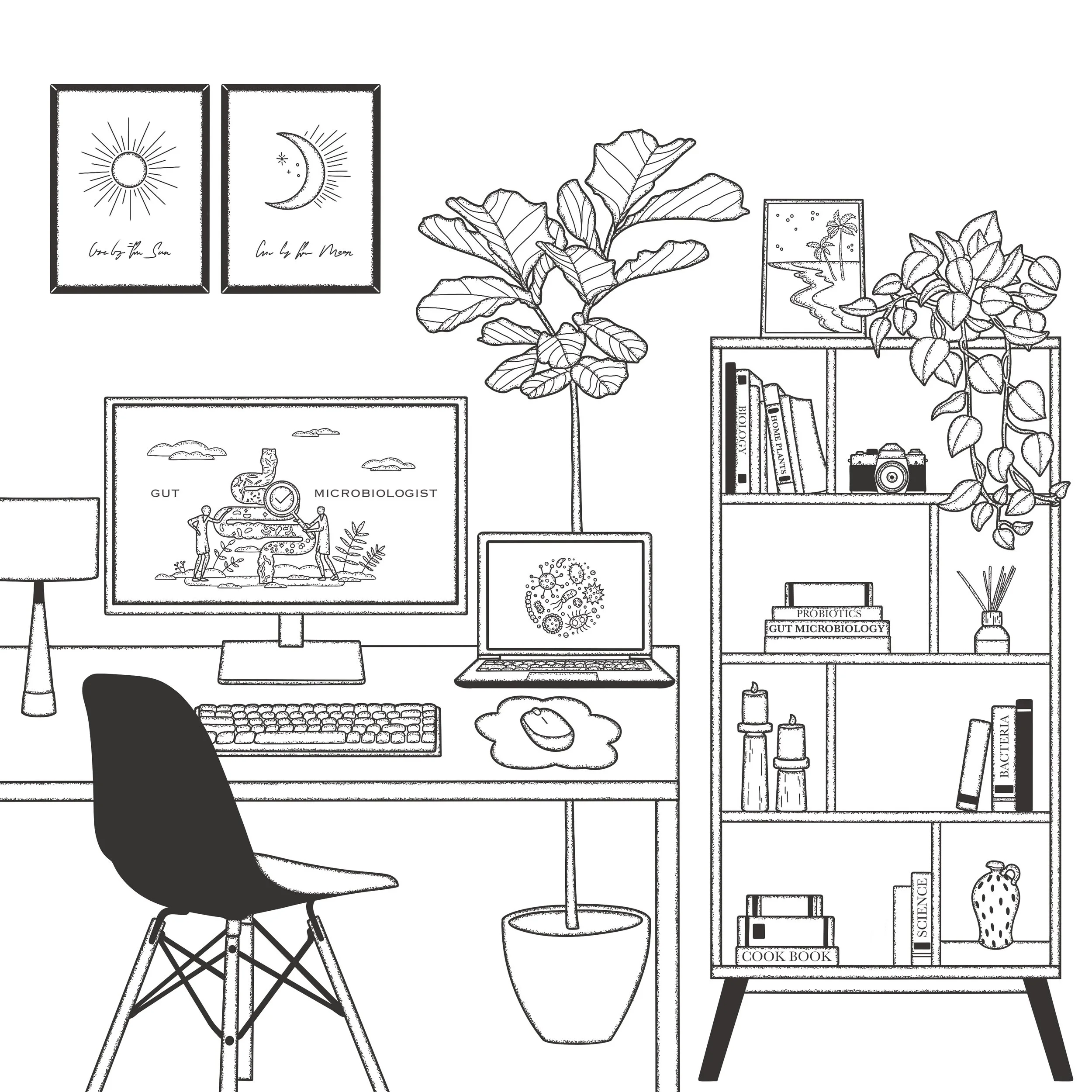
Section Styles spotlight-header
I am a
gut microbiologist
Leah Guthrie, PhD
Presented by society for scienceIN BIOLOGY, COMPUTERS can play a big role in our research.
As a gut microbiologist, I use computational tools to study the microbes that live in our guts.
MY WORK SETTING
Indoor vs. Outdoor
I spend all of my time working inside at a lab bench or my desk.
People vs. Alone
I spend about half my time collaborating with others and the other half alone writing papers or new grants.
Creative vs. Defined
My work is both creative and has structured lab protocols and procedures.
-
Our guts are filled with an immense amount of tiny bacteria that we call our "microbiome". That's what I study. Specifically, I look at how the things we eat can impact these microbiomes, and whether there are certain diets that can either help keep our gut microbiome healthy, or cause its critical balance to get thrown off.
-
There are two major halves to my research – lab experiments and programming. In the lab, I often run my experiments inside of an anaerobic chamber, meaning there is no oxygen inside. I grow common gut bacteria (which we call "communities" or "cultures") in different conditions to see what kinds of metabolites (which are things that form when the body breaks down food) are present. I also use programming languages like R to better understand the data we collect and what questions to ask next.
-
I'm very passionate about understanding the impact of diet on the gut microbiome and its relationship to human health. We've only recently begun to recognize just how important it is to have the right balance and diversity of bacteria in our guts. They do everything from stimulating the immune system, to breaking down potentially toxic food compounds, to synthesizing certain vitamins and amino acids, and are even connected to our mental health. The gut microbiome is a living, complex, and changing environment, and there's still a lot for us to learn so that we can ensure that our guts are healthy, and in turn, that they can help keep us healthy.
MY WORK NEEDSEssential Skills:
COMMUNICATION
I have to communicate both with other scientists during experiments and later my findings to medical professionals.
COLLABORATION
I work with a lot of other lab members and medical professionals - I have to have a good team-player attitude.
EMPATHY
Working in medical & health sciences requires empathy to best relate to and help patients in need.
PROBLEM-SOLVING
Running experiments is not a straightforward process, I always have to be ready to troubleshoot when things aren’t going as planned.
DAYS IN THE LIFE
Days in the Life
Come along and explore what three days at my job might look like!
How I Work
Check out what my place of work looks like on an average day.
This is what my workspace looks like!
My laptop + monitor. While I might also work in the lab, a lot of my time is spent on my computer.
Plants like my fiddle leaf fig. I love being surrounded by nature.
Lots of books! I’m a big reader and really enjoy learning.

Did you know...Your body is made up of more microbe cells than human cells.
Your gut microbiome is made up of trillions of bacteria, fungi, and other microbes that live inside your digestive system, playing a vital role in keeping you healthy. These tiny organisms help control digestion, strengthen your immune system, and support many other aspects of your well-being. But the gut microbiome is just one part of the story. You actually have about 39 trillion microbes living all over your body—on your skin, in your mouth, and more. By comparison, your body contains about 30 trillion human cells, meaning you are made up of slightly more microbe cells than human cells! These microbes often exist in communities, and are a lot like a fingerprint; no two microbiomes are exactly the same. Your microbiome is unique, and making sure that it is balanced and diverse is incredibly important to your health. So, while the word "germs" might make you think of something bad, the truth is that most of these microbes are essential for keeping you alive and healthy.
The more scientists delve into the world of the microbiome, the more they realize how incredibly complex and influential it is. This research has sparked a significant shift in our understanding of human health. Instead of viewing microbes merely as invaders to be eliminated, we're now recognizing them as partners in our well-being. These tiny organisms interact with each other and with your body in ways that we are only beginning to understand. For example, they help break down the food you eat, produce important vitamins, and even communicate with your brain to influence your mood and behavior. Understanding the gut microbiome isn't just about what's happening in your stomach; it's about embracing a more holistic view of health that acknowledges the profound impact of these microscopic companions. This new perspective opens up exciting possibilities for treating diseases, enhancing mental health, and improving overall quality of life.
Rewarding
These are the parts of my job I find particularly rewarding.
Solving complex problems in the medical field.
Working with students to help make computational science more accessible.
But everyone is different! Drag the circles to place them where you rate them.
Challenging
These are the parts of my job I find particularly challenging.
Public speaking and sharing my work with a lot of different audiences.
Writing grants and papers to communicate our findings.
Section Styles movable
These are the people I work with:
Medical Professionals
I communicate my findings to medical professionals so that they can better inform their patients.
Other Scientists
From other types of biologists, to chemists, and medical scientists, we cross-collaborate and work on different parts of the puzzle together.
Students
As a postdoc, I often interact with undergraduate, masters, and PhD students. This can be in the form of mentorship or collaboration.
WHAT’S NEXT?
What’s next for my field of work?Your microbiome already plays an important role in keeping you healthy, but it could soon also play an important role in predicting disease!
AI could use your gut microbiome to predict disease.
Researchers are currently developing methods that combine gut microbiology with artificial intelligence (AI) to predict human health outcomes with remarkable accuracy. These non-invasive methods analyze the trillions of microbes in your gut and the molecules in your cells. This powerful combination allows them to predict the risk of diseases like diabetes and inflammatory bowel disease more precisely than ever before, offering new possibilities for early detection and personalized treatment. The future of disease prediction is emerging, and it could indeed be powered by the tiny organisms living inside you!
Looking for teacher resources?
PHOTOGRAPHER: Ella Sophie • Illustrator: Ana Latese© 2024 THE PLENARY, CO. ALL RIGHTS RESERVED. TERMS. PRIVACY.This is a brand new site! See an issue? Let us know.















